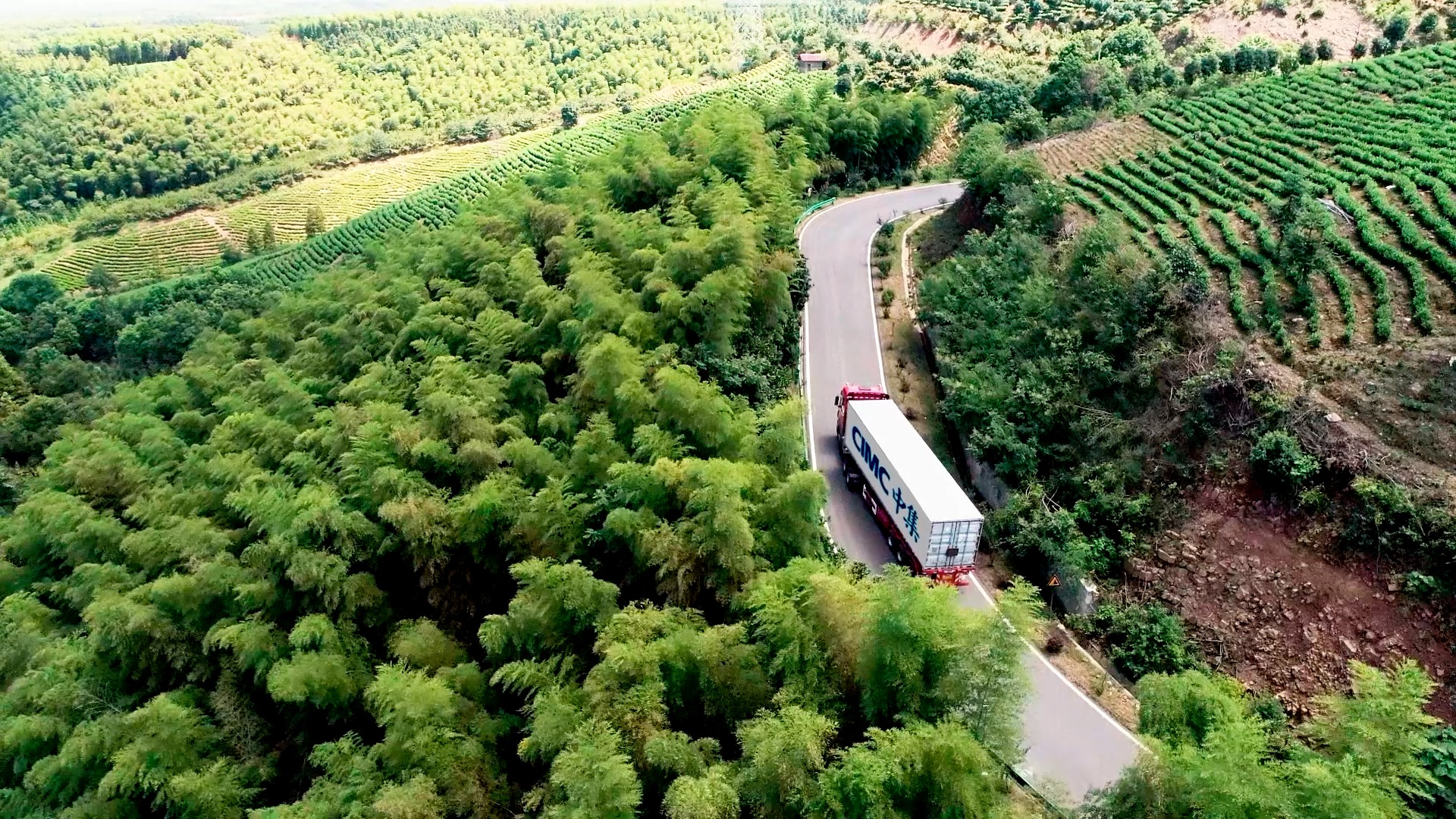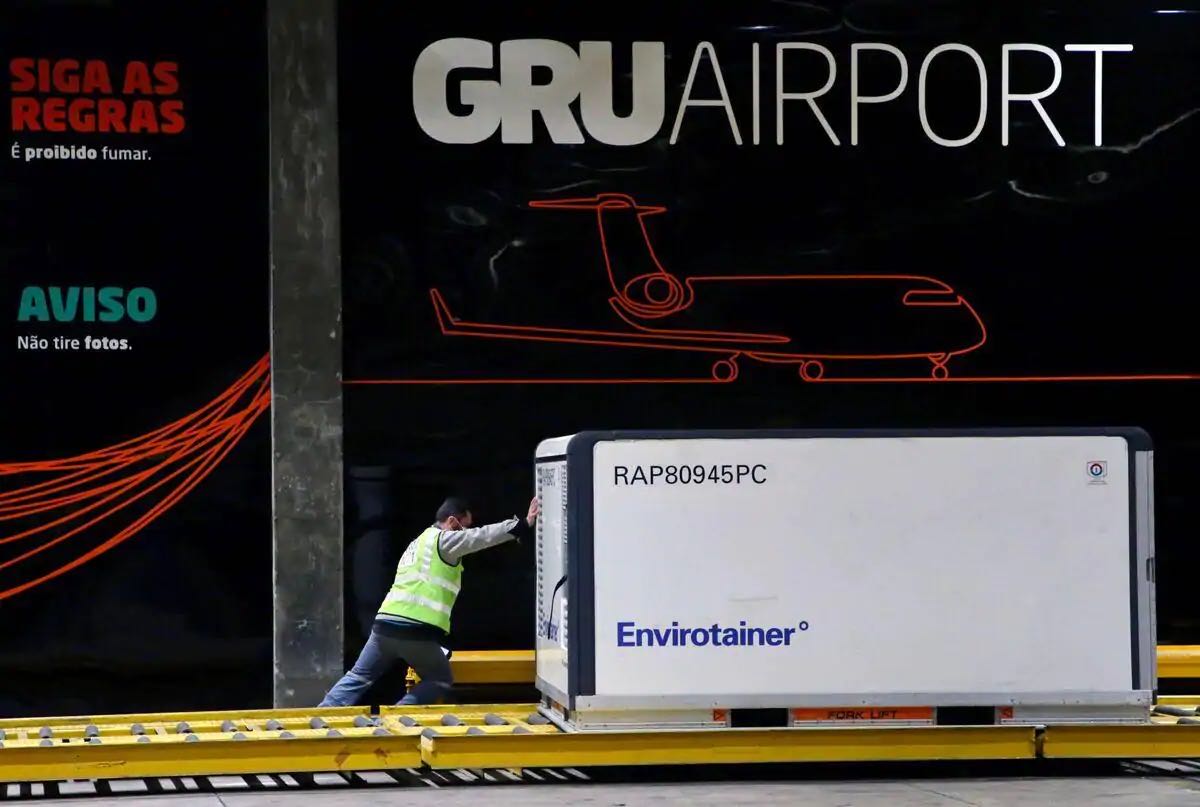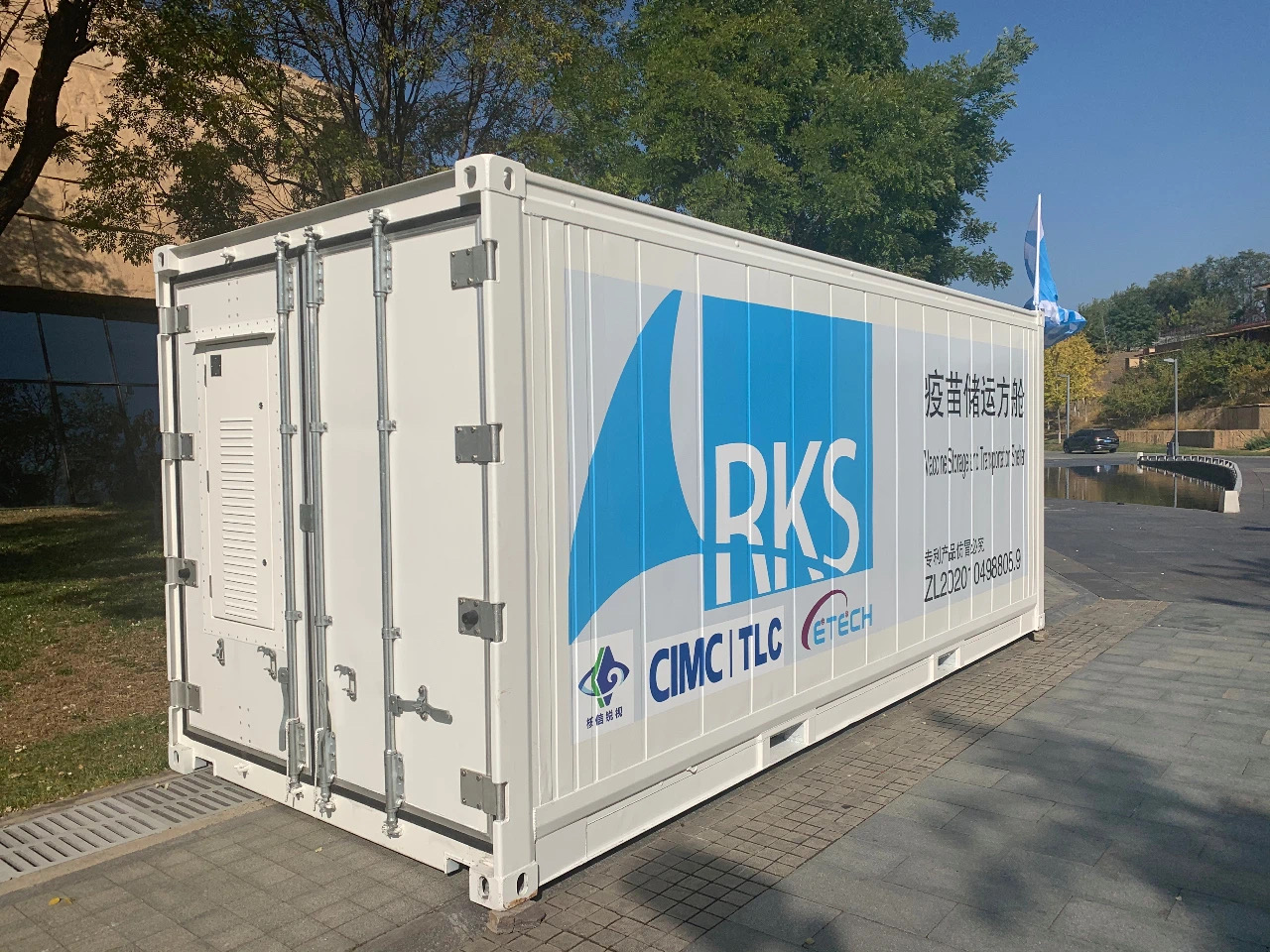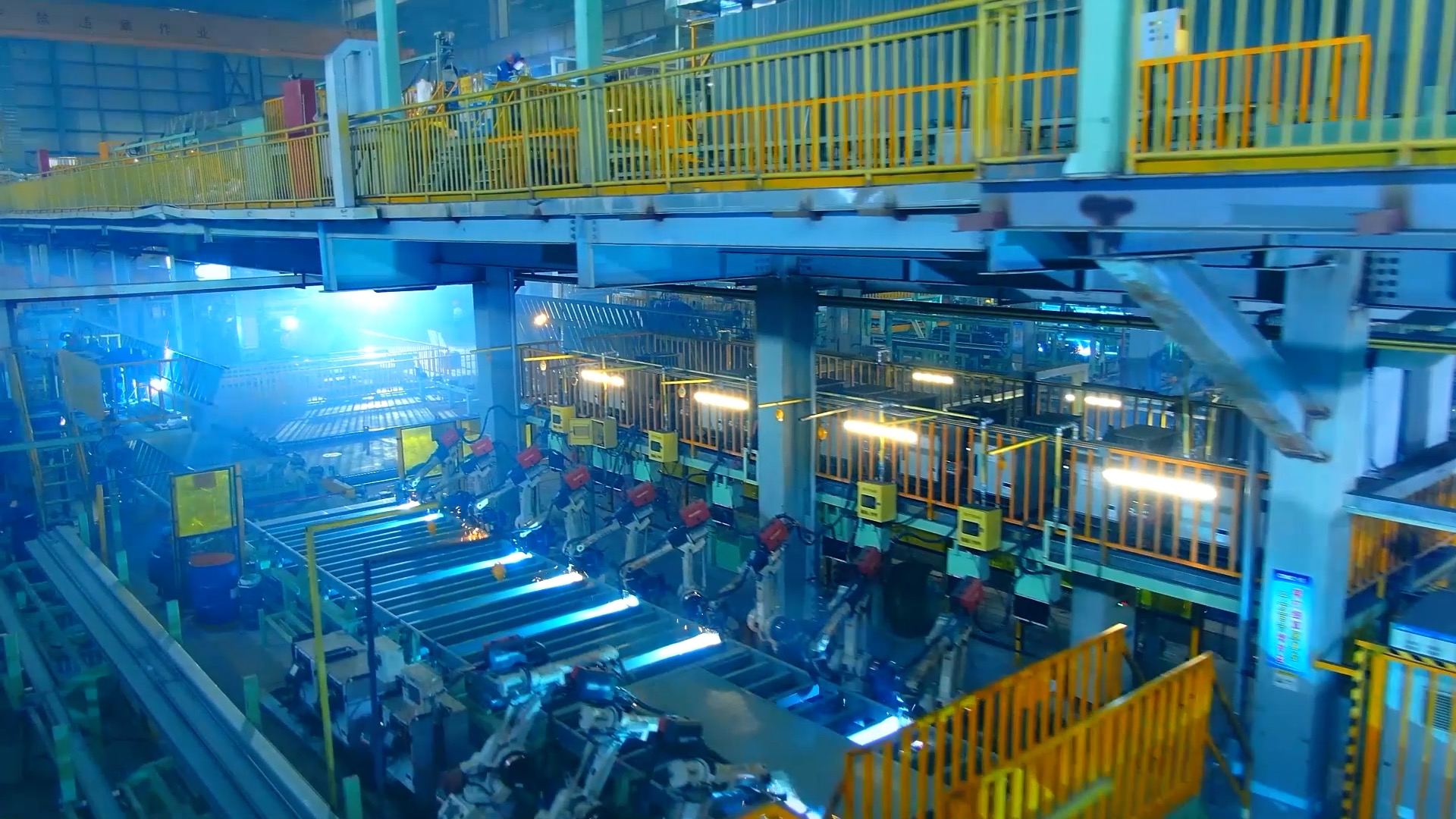04:11

As leading drugmakers are close to COVID-19 vaccines, the world will need cold chain logistics support for their distribution on a scale never seen before.
In China, stakeholders involved in the supply chain are stepping up readiness for the vaccines' eventual global distribution upon approval.

The cargo shipment of COVID-19 vaccines produced by the Chinese company Sinovac Biotech arrived in Sao Paulo, Brazil. /Photo via SF Express
The cargo shipment of COVID-19 vaccines produced by the Chinese company Sinovac Biotech arrived in Sao Paulo, Brazil. /Photo via SF Express
Transportation capacity
Chinese logistics giant SF Express has been working with suppliers to help deliver vaccine candidates and semi-finished items at home and abroad, as China export and import them for clinical trials.
While the company has already gone through the whole logistical process, its pharmaceutical VP Liu Xiaoli said when the quantity increases once the vaccines are approved, the main issue will be whether they can cope with such a large volume through this specialized channel.
Another challenge will be how to effectively smooth out differences among countries worldwide in terms of the allocation of resources, infrastructure, test standards, and other legal documents.
"We find that there are a lot of resources that we need from international partners, and at present, we have made some preparations already," said Liu.
Although many in the industry are optimistic about the maturity of China's vaccine distribution system, the transportation of COVID-19 vaccines requires unprecedented strict conditions – delivery within a tight time frame, at the right temperatures throughout, and to destinations all over the world.
SF says it has prepared over 200 specialized vehicles for transporting cold chain medical products, cold storage in 11 cities across the country, as well as cutting-edge temperature control boxes for the COVID-19 vaccines.
"We will have very professional staff. And the IT system will be able to promptly detect and solve problems, so we can then check and track the process. Meanwhile, resources must be distributed sufficiently and effectively, so that if there is an emergency, we can reallocate resources to mitigate it," Liu added.

Vaccine storage and transportation shelter developed by China International Marine Containers (CIMC). /Photo via CIMC
Vaccine storage and transportation shelter developed by China International Marine Containers (CIMC). /Photo via CIMC
Special equipment
Chinese cold chain equipment manufacturers are also working on more specialized products to meet new demands.
For example, China International Marine Containers (CIMC) has developed a new vaccine shelter, which features cold storage, positive pressure, and inactivation systems.
Xia Ye, a project manager of CIMC, said the shelter is tailored for vaccines transported long distances in different ways. It can avoid power-outages, pressure changes and especially, coronavirus contamination.
"We will use our Cold-chain Cloud to carry out real-time monitoring and big-data analysis of the delivery. This is our first generation of a prototype. Later we will overcome any shortcomings based on the information we gather", said Xia.
The project manager also says they also aim to develop more equipment to meet other shipping requirements exclusive to certain COVID-19 vaccines.
For example, synthetic mRNA vaccines need to be stored at an extremely low temperature of minus 70 degrees Celsius or below, according to reports.

CIMC's manufacturing base of refrigerated containers and vehicles. /Photo via CIMC
CIMC's manufacturing base of refrigerated containers and vehicles. /Photo via CIMC
Regulations & administration
China has been overtaking developed countries in cold-chain transport capacity of drugs in the past five years, according to Qin Yuming, secretary-general of Cold Chain Logistics Committee under China Federation of Logistics & Purchasing Experts. Qin said that's the result of the improvement of national laws and industry standards, as well as the fast growth of cold chain resources.
However, the whole process of vaccine transport will involve a lot of relevant government departments, such as China's food and drug regulator, civil aviation authorities, transport, and public security ministries, etc. The expert called on all the regulatory authorities to coordinate with each other to avoid any contradiction.
"Vaccine is a very special product as it ensures the safety of patients and health workers. For example, we hope that the current strict management of urban deliveries will allow for some fast tracks for vaccines," said Qin.
As a vaccine has not yet been launched, the specific administrative logistics protocols remain unknown. But there's confidence in the industry that if all the agencies involved work together, the COVID-19 pandemic will be ended.

